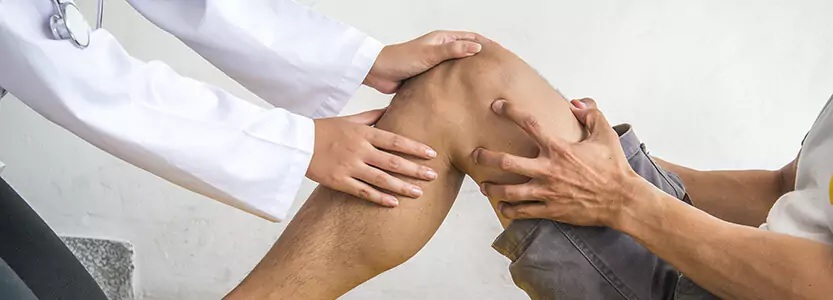Imagine a sharp, sudden pain in the back of your thigh, swelling, weakness, and perhaps bruising. Hamstring injuries can put a halt to your training sessions. But fear not—we are well-versed in providing physical therapy for hamstring injuries. We aim to get you back in the game and reduce your chances of suffering another injury, providing you with the relief and comfort you need.
Hamstring strains are common sports injuries. They often occur during sudden movements like a sprint start, hurdling, or from an activity like lunging. Left untreated, they can lead to prolonged discomfort and a higher risk of re-injury.
At Rose City Physical Therapy, we offer a comprehensive approach to managing hamstring injuries. With their expertise and dedication, our therapists use various manual techniques and functional exercises to reduce pain, strengthen the affected muscles, and restore your leg’s function. This personalized treatment not only aids in successful recovery but also helps prevent future injuries by addressing the underlying causes of the injury, giving you the confidence and security you need during your recovery journey.
Are you curious about what physical therapy for hamstring injuries looks like? Keep reading!
Understanding Hamstring Injuries: Symptoms and Causes
Hamstring strains occur when the hamstring muscle tears, either partially or entirely.
Several factors make it more likely that you’ll develop one:
- Participating in sports or activities that require a lot of jumping or sprinting
- Having tight hamstring muscles from a previous unresolved injury
- Weakened hamstring muscles, especially when compared to the quadriceps
- Not warming up adequately
The symptoms of a hamstring strain will vary somewhat based on its severity:
Grade 1 (Mild Strain)
This involves minor muscle fiber damage and usually develops due to overuse or a subtle strain. Symptoms include mild pain and tenderness at the back of the thigh. You might feel a slight pull or tightness, but usually, there is minimal swelling and no loss of strength.
Grade 2 (Moderate Strain)
A Grade 2 injury involves a partial tear of the muscle fibers. Symptoms include more intense pain, swelling, and noticeable bruising. You may have difficulty walking or bending your knee. Physical therapy for hamstring injury at this stage is essential to ensure proper healing and to prevent further damage.
Grade 3 (Full Tear or Rupture)
This is the most severe hamstring strain, involving a complete muscle tear. Symptoms are often severe, but sometimes, with a complete tear, there may be no pain. Also, significant swelling and bruising occur. You may need assistance to walk. Immediate medical attention, often with surgery after that, and a comprehensive rehabilitation program are crucial for recovery.
How Physical Therapy Treats Hamstring Injuries
The good news is that physical therapy is a practical choice for treating hamstring injuries. At Rose City Physical Therapy, we’ll create a customized treatment plan pulling from a variety of different interventions, including the following:
Manual Therapy
Manual therapy techniques, such as soft tissue manipulation, can help reduce pain, alleviate muscle tension, and improve blood flow to the injured area, facilitating your body’s natural healing processes.
Stretching Exercises
Targeted exercise forms the foundation of our treatment plans, and we’ll start by working to restore the flexibility of your hamstring muscles through simple stretches.
Strengthening Exercises
As your hamstring’s range of motion improves, we’ll also work on strengthening exercises. While strengthening your hamstrings, we’ll also help strengthen the surrounding muscles, such as your glutes, to ensure a balance between muscle groups.
Injury Prevention
Finally, we’ll help you address any underlying issues contributing to your hamstring strain. This might mean developing a good warm-up and strengthening routine to keep your hamstrings flexible and strong or a cross-training program to help prevent muscle imbalance and overuse.
Physical Therapy for Hamstring Injuries: We’re Here to Help!
Are you dealing with pain and stiffness in your hamstring? Remember, the earlier you address that discomfort, the better off you’ll be. Even a minor hamstring strain can set you up for a more severe injury. So, don’t wait; take the first step towards your recovery journey by scheduling an appointment with Rose City Physical Therapy today.
Schedule an appointment with Rose City Physical Therapy today to get started.



